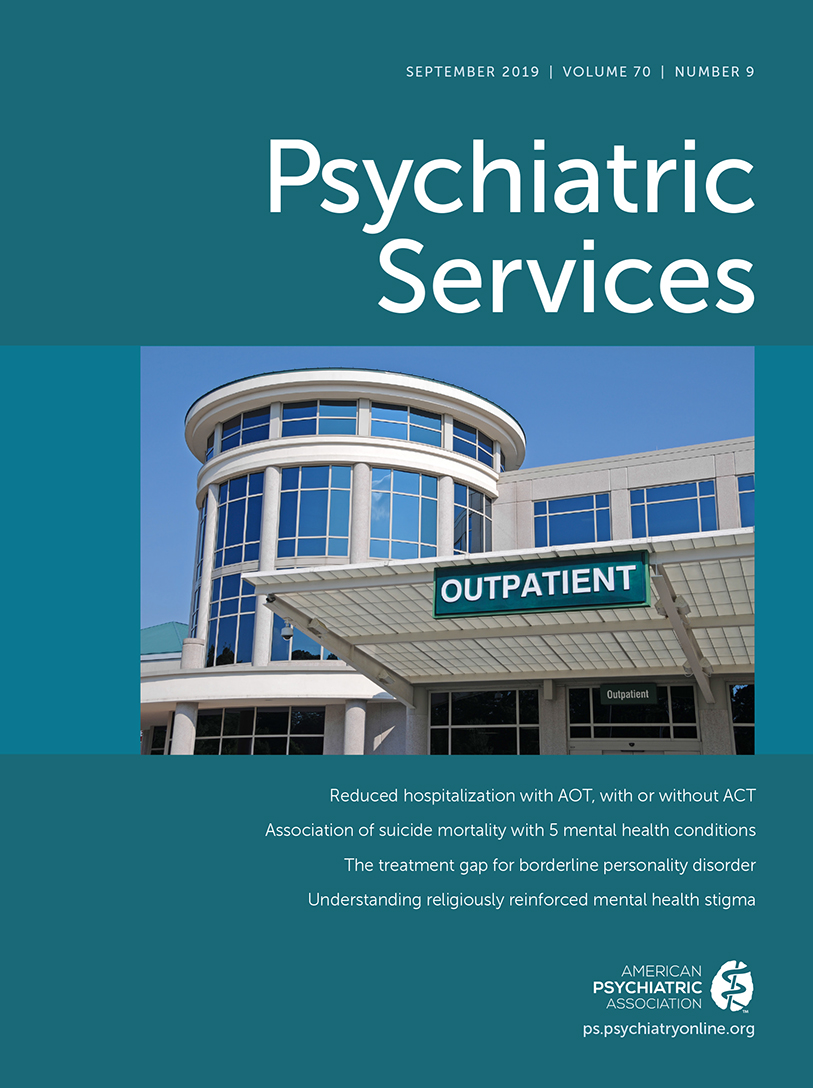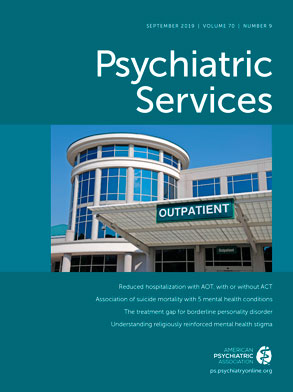We very much appreciate Dr. Iliakis and colleagues’ innovative study (
1) of demand and supply of treatment for borderline personality disorder (BPD). The results of this study starkly highlight a major health disparity but are not surprising. Documenting a worldwide dearth of evidence-based practices (EBPs) for BPD, this study points to dire consequences. With high suicide and nonsuicidal self-injury rates, recurrent emotional dysregulation, and unstable interpersonal relationships, many patients with BPD endure a life of suffering or choose suicide. The lack of adequate treatment is also costly in terms of emergency visits, hospitalizations, lost wages, and disability, plus the social, emotional, and financial burden on family and friends.
Patients with BPD have been struggling to overcome the myth that they have an untreatable diagnosis—one stigmatized in both mental health and general medical care. The authors offer an excellent review of EBPs for BPD and reveal how rarely individuals with BPD receive treatment at all. What they do not address, however, is that many clinicians actively avoid treating patients who have BPD because they do not feel capable of helping them. Also, compensation is comparable for most outpatient mental health care, regardless of the severity of or risk posed by the disorder, creating disincentives for clinicians to treat patients with complex diagnoses. These forces further decrease supply of clinicians to treat BPD. We must find ways to make EBPs for BPD more accessible to prevent these devastating consequences and provide therapists with the tools they need to choose to treat BPD and succeed in doing so.
This will require synthesis of key dialectical tensions. As Dr. Iliakis and colleagues demonstrate, only a handful of psychotherapies are considered evidence-based treatments for BPD, and these treatments are usually costly, lengthy, and labor intensive—and effective. Given that almost all EBPs for BPD involve extended weekly psychotherapy, which is also the primary recommendation for BPD by the American Psychiatric Association, BPD likely requires more comprehensive treatment than other conditions. If so, as attractive as brief interventions might seem, they may not be adequate to treat BPD. The disorder has been characterized by treatment resistance and impaired patient-therapist alliance. Without enough time for a therapeutic alliance to form, brief treatments may not allow these patients to succeed; the situation is worse in primary care, where no one has the expertise or time to form an alliance. Unhelpful treatment can lead to hopelessness about treatment, distrust in any future treatment, and decreased self-confidence. Worse, inadequate treatment can be fatal for patients with BPD who frequently respond to hopelessness and loss with suicidal behavior.
As the authors note, resources are not adequate to help these patients, particularly in lower-resource countries, and limiting care options to an EBP could mean patients receive no treatment at all. However, consider a general medical condition (e.g., cancer or stroke) causing the distress and disability of BPD and requiring expensive treatment. Most likely, that treatment would be more widely available than a comparable mental health intervention, particularly one for BPD. This stigma in the health care system should not result in the deployment of briefer but inadequate treatments. Thus, we disagree with the authors’ conclusion that “standards of care for BPD must be expanded.” Expanding treatment standards to interventions with inadequate support puts patients at risk and wastes resources that could be spent making EBPs for BPD more available.
Our synthesis to these dialectical tensions is shared with the authors—to ensure that more accessible and lower-resource options are developed, evaluated, and compared with treatment as usual to determine whether they provide meaningful benefit, and if so, to widely deploy them. Interventions developed in the community may have the greatest likelihood of acceptability and feasibility, and studies are therefore critical to confirm they are EBPs and make them widely available. Research also has to employ pragmatic clinical trials that more efficiently determine effectiveness in the settings where EBPs are needed. Finally, interventions must lead to clinician and patient self-efficacy as well as to positive clinical outcomes to overcome the bias against BPD. These goals will require new partnerships between health systems and researchers, comparable to partnerships for combating medical disease—a worthwhile challenge.

